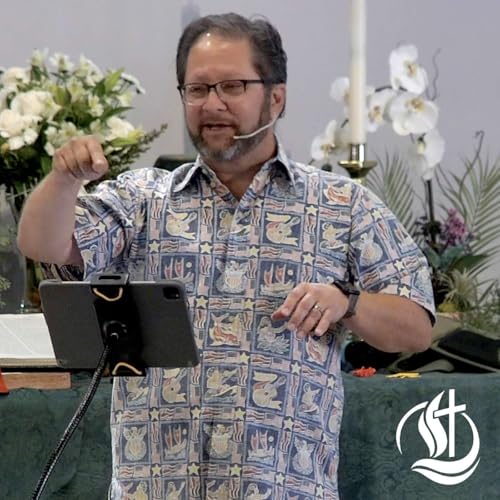
Jesus Asked Us to Love Our Enemies, But How Do We Actually Do That?
No se pudo agregar al carrito
Add to Cart failed.
Error al Agregar a Lista de Deseos.
Error al eliminar de la lista de deseos.
Error al añadir a tu biblioteca
Error al seguir el podcast
Error al dejar de seguir el podcast
-
Narrado por:
-
De:
Send us a text
What happens when you combine a children's movie about dragons with one of Jesus's most challenging teachings? A surprisingly profound exploration of conflict, empathy, and the radical power of loving your enemies.
Using "How to Train Your Dragon" as a creative entry point, we dive into the timeless wisdom behind Jesus's command to "love your enemies and pray for those who persecute you." The film's protagonist, Hiccup, discovers that dragons—long considered mortal enemies of his Viking community—aren't the mindless killers everyone believes them to be. Through understanding and connection, he transforms a generational conflict into peaceful coexistence.
This cinematic journey parallels our real-world struggles with Jesus's difficult teaching. We wrestle with honest questions: Is there a limit to loving our enemies? What about the Hitlers of the world? Yet history offers us powerful examples in figures like Gandhi and Martin Luther King Jr., who employed nonviolent resistance to overcome oppression. Their approach wasn't just moral idealism but strategic wisdom—holding a mirror to oppressors and creating space for transformation.
The sermon reveals a profound truth: often those who harm us are themselves responding to harm. Just as the dragons in the film were forced into aggression by a larger, more fearsome dragon, our human "enemies" frequently act from their own places of wounding and fear. When we create space to understand this reality, we open possibilities for reconciliation that violence could never achieve.
Perhaps Jesus, who demonstrated the ultimate example of loving enemies, knew something fundamental about human nature. We share common anxieties, fears, and desires. By embracing this teaching, we don't just follow a commandment—we tap into a transformative power that can break cycles of violence and create pathways to peace. Loving our enemies might be difficult, but what if it's the only approach that truly works?
Support the show



